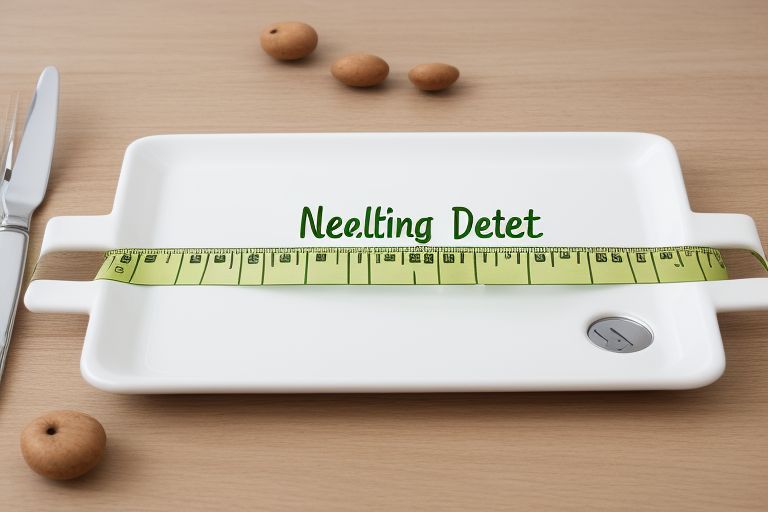Introduction
Weight loss is a goal for many people, but achieving it in a healthy and sustainable way requires a well-balanced diet. A weight loss diet is not about extreme restrictions or quick fixes but rather about making smart food choices that promote overall health. Incorporating nutrient-rich foods, controlling portion sizes, and staying hydrated are key to shedding excess weight effectively.
Key Principles of a Weight Loss Diet
Losing weight is not just about cutting calories but also about maintaining a nutritious and balanced diet. Here are some essential principles to follow:
- Caloric Deficit – Consume fewer calories than you burn to promote fat loss.
- Nutrient-Dense Foods – Prioritize whole, unprocessed foods like vegetables, lean proteins, and whole grains.
- Hydration – Drink plenty of water to improve metabolism and reduce hunger.
- Portion Control – Eating the right portion sizes prevents overeating.
- Mindful Eating – Avoid distractions while eating and focus on enjoying meals slowly.
Best Foods for a Weight Loss Diet
1. Leafy Greens
Spinach, kale, and other leafy greens are low in calories and high in fiber, keeping you full longer. They are also packed with vitamins and minerals essential for overall health.
2. Lean Proteins
Protein is crucial for muscle preservation and fat loss. Opt for lean protein sources like chicken breast, turkey, fish, tofu, and lentils. These help keep you full while maintaining muscle mass.
3. Whole Grains
Replace refined carbohydrates with whole grains like quinoa, brown rice, oats, and whole wheat. These are high in fiber, keeping your digestion healthy and reducing hunger pangs.
4. Fruits and Berries
Fruits like apples, oranges, and berries provide natural sweetness without added sugars. They are rich in vitamins, antioxidants, and fiber, making them a perfect snack for weight loss.
5. Nuts and Seeds
Almonds, walnuts, flaxseeds, and chia seeds provide healthy fats and protein. However, they should be consumed in moderation due to their high calorie content.
6. Greek Yogurt
High in protein and probiotics, Greek yogurt supports digestion and helps with weight management. Choose unsweetened varieties for the best results.
7. Green Tea
Green tea is rich in antioxidants and can boost metabolism, making it a great addition to a weight loss diet. Drinking green tea regularly can help burn fat naturally.
Foods to Avoid for Weight Loss
1. Sugary Drinks
Sodas, energy drinks, and sugary juices contain empty calories that contribute to weight gain. Instead, opt for water, herbal teas, or infused water.
2. Processed Foods
Chips, fast food, and packaged snacks often contain unhealthy fats, excessive sugar, and preservatives that lead to weight gain.
3. Refined Carbs
White bread, pasta, and pastries spike blood sugar levels and cause cravings. Replacing them with whole grains can improve weight management.
4. Excess Alcohol
Alcoholic beverages are high in calories and can slow down fat metabolism. Limiting alcohol consumption helps with weight loss.
Sample Meal Plan for Weight Loss
Breakfast
- Scrambled egg whites with spinach and whole wheat toast
- A cup of green tea or black coffee
Mid-Morning Snack
- A handful of almonds or walnuts
- A bowl of Greek yogurt with chia seeds
Lunch
- Grilled chicken breast with quinoa and steamed vegetables
- A glass of lemon water
Afternoon Snack
- An apple or a handful of berries
- A cup of green tea
Dinner
- Baked salmon with roasted sweet potatoes and asparagus
- Herbal tea for digestion
Evening Snack (Optional)
- A small handful of mixed nuts or a protein shake
Additional Tips for Effective Weight Loss
1. Stay Consistent
Weight loss takes time and dedication. Consistency in diet and exercise is key to seeing long-term results.
2. Exercise Regularly
A good diet works best when combined with physical activity. Aim for at least 30 minutes of exercise daily, such as walking, jogging, or strength training.
3. Get Enough Sleep
Lack of sleep disrupts hormones related to hunger and metabolism. Ensure 7-9 hours of quality sleep each night.
4. Manage Stress
High stress levels can lead to emotional eating and weight gain. Practice relaxation techniques like yoga, meditation, or deep breathing exercises.
Conclusion
A weight loss diet is about making healthier food choices rather than strict deprivation. By incorporating nutrient-rich foods, staying hydrated, and practicing portion control, you can achieve your weight loss goals naturally. Avoiding processed foods and sugary drinks while focusing on whole, natural foods will help maintain a healthy lifestyle.
If you’re traveling for business and need the proper documentation, don’t forget to Apply for an Indian Business Visa or Apply for an Indian Business Visa from Australia for a smooth and hassle-free trip.
By following these weight loss strategies, you can enjoy better health, increased energy levels, and improved well-being!

